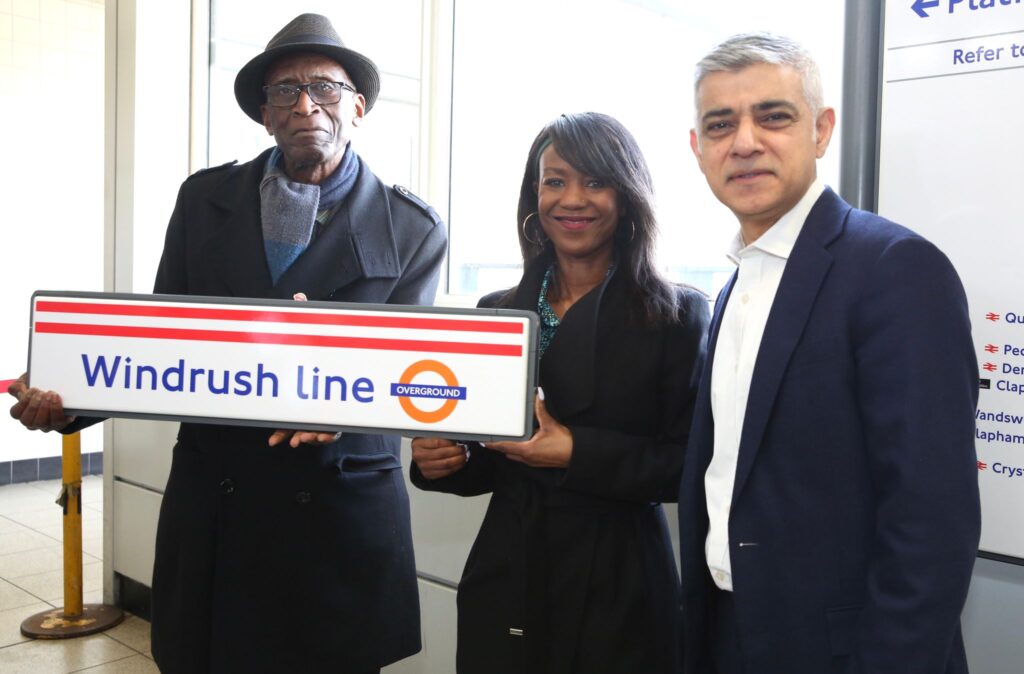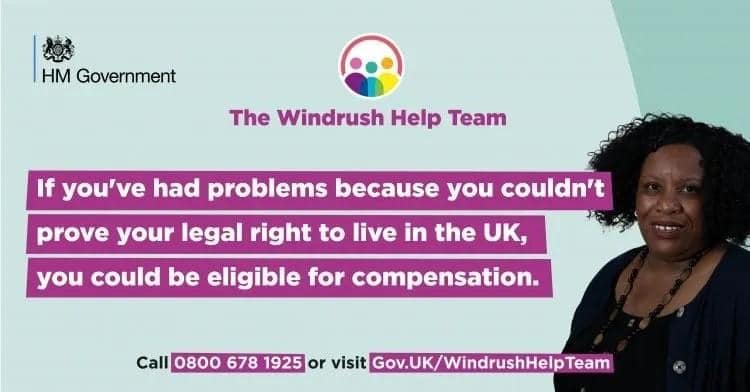Any successful and thriving city in the world needs to have all its residents to be well-informed who must be able to share in its history, prosperity, culture, and community life regardless of their age, social class, disability, race, religion, ethnicity, gender, gender identity and sexual orientation.
London is a melting pot and hosts people from diverse backgrounds, and it is home to a majority of the Windrush generation – people who arrived in the UK between 1948 and 1973, coming from Commonwealth countries, mostly Caribbean nations.
The famous HMT Empire Windrush docked in Tilbury, Essex, carrying passengers 1,027passengerson boardfrom the Caribbean to the UK and that was the beginning of a new generation in the UK as the people continued to trek in into Britain from the West Indies and the commonwealth.
People arriving to the UK from the Commonwealth between these dates had the right to live and work in the UK permanently.
However, most were unlikely to have been issued with any paperwork to prove their right to be here by the UK Government, other than perhaps a stamp in their passport.
For many years this was not a problem.

However, as immigration enforcement measures increased under the “hostile environment”, people who could not prove they had a right to live in the UK were cut off from their rights and access to essentials such as work, driving licences, housing, and healthcare.
This meant that many people, who arrived in the UK as part of the Windrush Generation, were unable to prove their status and suffered devastating consequences.
As a result, many people lost their jobs, lost their homes, could not access life-saving medical treatment, and experienced a serious impact on their mental health and wellbeing.
Some were also detained and removed from the UK.
In March 2020, the Windrush Lessons Learned Review confirmed that members of the Windrush Generation and their children have a right to live in the UK and should have not been treated this way by the UK Government.
The Government through the Home Office thus are offsetting those (and their families) who have been affected by this, that they may be entitled to apply for confirmation of their status and compensation.

The compensation is also extended to people from any country who arrived and settled in the UK before 1989, who have also found themselves without necessary evidence of their right to live in the UK.
It is for this reason that Mojatu Foundation in London collaboration with Rafiki Wema, a subsidiary of Mojatu Charitable and humanitarian organisation, as part of the Home Office community engagement fund conducted a series of activities in Brixon in sensitising the community, particularly from the Caribbean and the Commonwealth countries on the Windrush Compensation Scheme.
The Mojatu London team, participated in a Windrush Exhibition in Brixton in March 2024, which is part of remembering the enormous contribution that the Windrush generation gave to Britain, showcased texts and images about life in the West Indies from Emancipation in the 1830s when nearly a million Africans in British colonies won their liberty, having been enslaved for all or most of their lives.
The Windrush Exhibition also abridged significant events that led to the emancipation and includes stories of colonial life, the contributions of West Indians to Britain’s prosperity, their service in the military, the arrival of hundreds of them on June 22, 1948, at Tilbury Docks, Essex, on the Empire Windrush.
Rafiki Wema, a London-based media organisation, alongside Mojatu Foundation help strengthen London communities to create positive change through media literacy and services and they zeroed in on Windrush Compensation Scheme in order for the people especially from the Caribbean and African nations to understand better about how the Home Office is recompensing those that are affected by Windrush scandal.

London Mojatu Magazine managing Editor and communication specialist Mohammed Omar said: “Through our Windrush Compensation Scheme community engagement, we reached out to many people who did not understand how the scheme work.
“There are a lot of misinformation and misconception about the compensation scheme, and I am glad we took part in this project,” said Omar.
So, who are the Windrush Generation?
More large Jamaican communities in London are Tottenham in North London, Hackney in East London, Harlesden in North-West London and Brixton, Croydon, and Lewisham in South London.
HMT Empire Windrush have become a significant symbol of a wider mass-migration movement.
According to the National Archives, which holds the ship’s passenger list, there were 1,027 people on board. More than 800 gave their last country of residence as somewhere in the Caribbean.
Several hundred passengers were Jamaican, but others arrived from islands including Trinidad, St Lucia, Grenada, and Barbados.
These travellers – and those on other ships which came to the UK until 1971 – became known as the Windrush generation.
Many had served in the British armed forces in World War Two.
The 1971 Immigration Act gave Commonwealth citizens living in the UK indefinite leave to remain – the permanent right to live and work in the UK.
This included the Windrush generation but also people from other former British colonies in South Asia and Africa. This scheme provides financial support to individuals who incurred losses due to difficulties proving their legal immigration status in the UK.

The scheme is not limited to those who came from the Caribbean.
However, in April 2018, it emerged that the UK Home Office had kept no records of those granted permission to stay and had not issued the paperwork they needed to confirm their status – It had also destroyed landing cards belonging to Windrush migrants, in 2010.
Those affected were unable to prove they were in the country legally and were prevented from accessing healthcare, work, and housing.
Many were also threatened with deportation.
A review of historical cases also found that at least 83 people who had arrived before 1973 had been wrongly deported.
The Scheme’s eligibility
Launched by the Home Office in May 2018, the Windrush scheme aims to support members of the Windrush generation by providing them with free documentation proving their right to live and work in the UK.
This applies to individuals who lack such documentation despite being settled in the country.
To be eligible for the scheme, an individual must meet one of the following criteria, they came to the UK from a Commonwealth country before 1973, their parents came to the UK from a Commonwealth country before 1973 and that they came to the UK from any country before 31 December 1988 and were now settled in the UK.

The precise documentation that an individual may be granted varies based on their circumstances.
In December 2020, following a consultation with the Windrush working group, changes were announced to the Windrush compensation scheme.
As part of the changes, individuals would receive a minimum of £10,000 compensation through the ‘impact on life’ category once their claim had been approved. This was 40 times the minimum award of £250 that was then available.
Local support
In Reading, further support and information are available from the following charities:
- Mojatu Foundation and Rafiki Wema London
https://www.mojatufoundation.org/ - https://rafikiwema.org/
People who need help accessing or using the internet may also be eligible for free assisted digital services from We Are Group by calling 0808 196 8496 or texting “Visa” to 07537 416 944.
The service is open on weekdays from 9.00am to 6.00pm.
Find out more at GOV.UK/Windrush Help Team or by calling the Windrush Help Team for free helpline at 0800 678 1925.
I am glad we took part in this project.”
Omar Mohamed
Mojatu Magazine London, Editor &Communication Specialist




